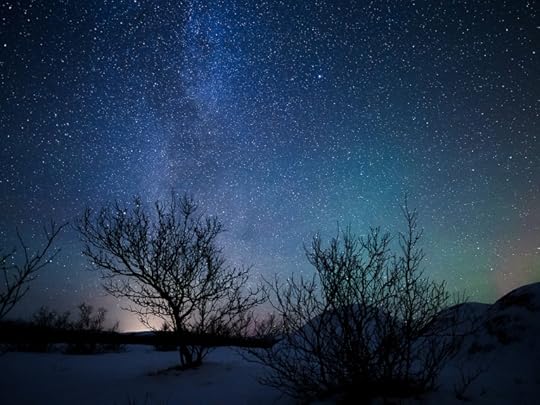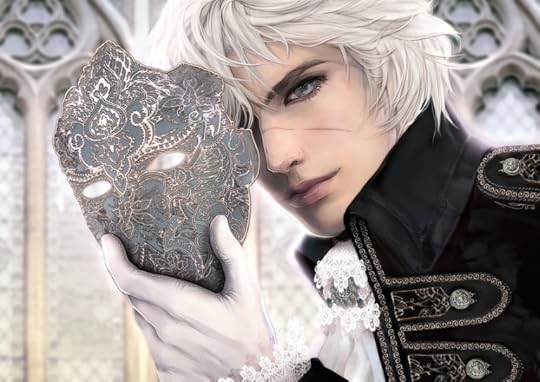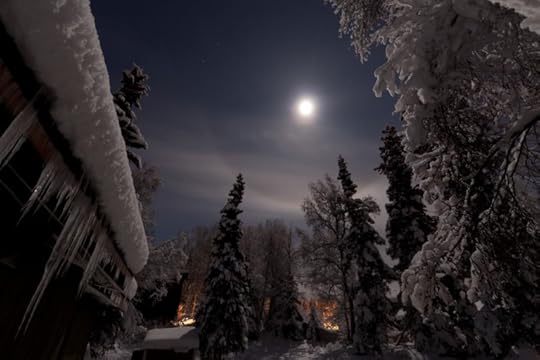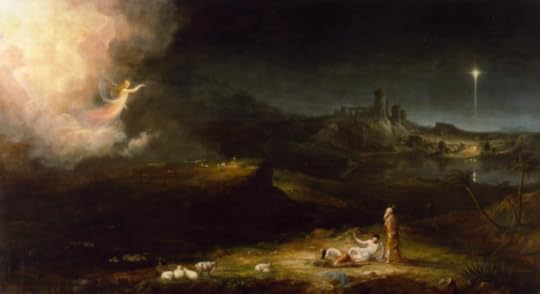Cynthia A. Morgan's Blog, page 42
December 28, 2022
Descend – #Poetry of the #NaturalWorld
.
Descend
Sweet Silence
Upon my Brash Calamity,
Descend
Purest Peace
With Harmonious Tranquility,
Descend
Gentle Grace
Into my thrashing notions,
Descend
Soft Stillness
Like the Scintillating Ocean.
.
~Morgan~
.
.
.
Beautiful Photograph found on Pinterest. Credit acknowledged to the Original Photographer. Thank You!
December 27, 2022
Cosmos – #Cinquain #Poem of the #NaturalWorld

Tranquil
Sweet Starlit Night
Whispers from the Heavens
Fill the Heart and Soul with Wonder
Cosmos
.
~Morgan~
.
.
.
Beautiful Photograph found at: wallpapershome.com
December 26, 2022
Tower of Night- #Poetry of the #NaturalWorld
Tower of Night,
Dark river of Dreams,
Thundering Melody of Timeless Symphony.
Echo of Memory,
Enticing Fragile Thought,
Intoxicating Beauty, with Mortal Danger Fraught.
Spectacle of Heaven,
Gleaming Majesty,
Claim my Inspiration with Deliberate Mystery!
~Morgan~
.
.
.
Beautiful Photograph found at: hqdesktop.net
December 25, 2022
Nighttide – Diamante #Poem of the #NaturalWorld

.
Nighttide
Enduring Synchronicity
Whispering, Engendering, Transcending
Velveteen Magic, Mystery Afar
Sparkling, Scintillating, Life-Giving,
Breathtaking Splendor
Stars
.
~Morgan~
.
.
.
Beautiful Original Photograph by Norseman1968 via Flickr. Thank You!
December 24, 2022
Being All – A #Christmas #Prayer of #Poetry and #Music

.
.
(To enhance the verse, Please listen while reading)
Blessed Heavenly Father, Who brought us Life and Light and Liberty,
Being All,
Be All to me, Be All In Each,
Love, In Love’s Vast Symphony,
Creator,
Creating All I See,
Infinite Splendor, All In Thee.
We Thank You for The Miracle of Christ’s Birth,
Of Sweet Heaven, come down to Earth,
Vision of Symphonic Trilogy,
Cause us to Pause
to Ponder,
Impossibility,
Of All we Feel, of All we see,
Being All,
Be All in Me, Be All in Each
We Give you Praise for Your Love’s Rich Store,
Teach us to Love, Lord, More and More
Sweetest Harmony,
Beyond Insecurity,
Be Our Treasure of Trust
In this world of Incomprehensibly,
Being All,
Be All in Me, Be All in Each
Blessing of Hope and Joy, Teach us to sing Your Glory,
To Share the Wonder of this Season’s Story
As Implacable Time in Fair Mystery,
Like the Magnificent Ocean and Beauteous Sea,
Speak Light and Life and Liberty
Through us each Day
And Being All,
Be All of Me! Be All in Each!
.
~Morgan~
.
.
.The Music and Muse category by Morgan shares Poetry and the Music which Inspired it.
Many Many Thanks to Ben Naga of bennaga.wordpress.com for sharing this Exquisite piece of music with me, which in turn inspired these words and this emotion.
Star Art found at: http://hdwpics.com
Save
December 23, 2022
Christmas Sonnet- Sonnet 35
Beyond the barren, desperate plains,
The Weary, Calling to Heaven from earth;
Countless generations Cry in pain,
Breathlessly Awaiting a Royal Birth.
Light and Liberty, Outward Reaching,
Through all the years of Tribulation;
Prophets, Wisdom Gently Speaking,
Foretell Celestial Jubilation.
Across the skies of Darkness, Reaching
Down from Heaven on Bending Wing;
Love Imbued with Harmony, Teaching,
As Vast Choirs of Angels, Triumphantly Sing.
“Lift up your eyes with Joy, not Fear,
For Blessed Love Draws Gently Near.”
Unto those mortals, meek and lowly,
Watching o’er their flocks by night;
Heralding a Birth, Humble and Holy,
Love Shines forth in a New Star’s Light.
Amidst sheep and cattle, quietly Attending,
Laid to sleep within a manger there;
While Praises through the bleak night, Ascending,
Mark the poor and modest Gloriously Fair.
Finding the Child in Bethlehem’s stall,
Humble Shepherds Bow to an Infant King,
Where Heaven, Bending to Bless one and All,
Smiles, while Angels a Lullaby Sing.
God’s own Child sent to Lead and Heal,
God’s Love and Grace, In Flesh Made Real.
.
~Morgan~
.
.
.
Beautiful Original Artwork by: Thomas Cole and William-Adolphe Bouguereau
Star Image found at: desktopnexus.com
#FridayFantasy – Jack- #Winter #Poetry

Through the Hush
He Silently Wanders,
Whispering Mystery
While he Ponders,
Silence Sleeping
Upon his Sleeve,
Smiling Brightly,
While he Deceives,
Lingering Chill
From his Frosty Embrace,
Wintry Emblem
Of Sparkling Grace.
.
~Morgan~
.
.
.
Beautiful Original Artwork by: Negshin at Deviantart.com
December 22, 2022
#FridayFantasy – The Sight- #Christmas #Poetry

Mystery Winging,
Through the Moonlight Singing,
Sweet Serenade of Lustrous Night;
Secrets Ringing,
With Enchantment, Bringing
Magic to the Wondrous Sight!
.
~Morgan~
.
.
.
Original Artwork found on Ravepad.com
December 21, 2022
Speak Gentle Softness- #Winter #Haiku
Speak Gentle Softness
Tranquility on the Air
Serenade of Calm
.
~Morgan~
.
.
.
Beautiful Photograph found on: hdimges.com
December 20, 2022
Wordless Wednesday – Long Winter’s Night







.
~Morgan~
.
.
.
Beautiful Photographs found on Google Image Search. Credit acknowledged to the Original Photographers, Thank You!









